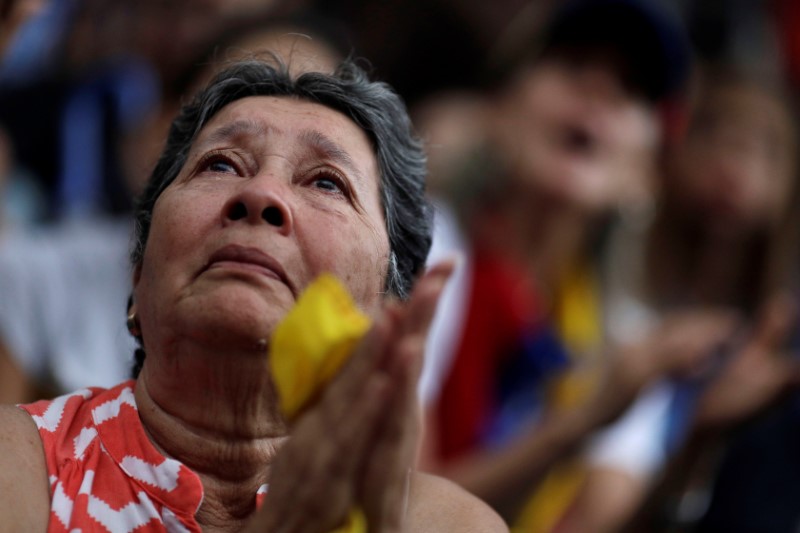By Hugh Bronstein, Patricia Zengerle and Matt Spetalnick
CARACAS/WASHINGTON (Reuters) - A defiant Venezuelan President Nicolas Maduro mocked the sanctions Washington slapped on him Monday after Sunday's election of a new legislative superbody that prompted the White House to call him a dictator for "seizing absolute power."
Oil-rich but economically ailing Venezuela awaited a fresh wave of protests against the unpopular Maduro, whose loyalist Supreme Court had already stripped the opposition-controlled congress of its powers, while the country waited to see what actions the newly-minted constituent assembly will take.
At least 10 people were killed in unrest during Sunday's vote, bringing the death toll from four months of anti-government protests to more than 120. Governments from Spain to Canada to Argentina and Peru joined Washington in denouncing the election, which was boycotted by the opposition and widely seen as an affront to democracy.
Maduro, hit earlier on Monday by sanctions aimed directly at him, chided U.S. President Donald Trump for winning the presidency by way of the electoral college after losing the popular vote in the November election.
"I don't take orders from the empire," he shouted to a televised gathering of supporters. "Keep up your sanctions, Donald Trump!"
"In the United States it's possible to become president with 3 million votes less than your opponent. What a tremendous democracy!" Maduro told a cheering and applauding audience.
Democrat Hillary Clinton outpaced Trump by almost 2.9 million votes, according to official U.S. election results.
Maduro said the sanctions reflected Trump's "desperation" and "hatred" for Venezuela's socialist government.
Under the sanctions, all of Maduro's assets subject to U.S. jurisdiction were frozen, and Americans are barred from doing business with him, the U.S. Treasury Department's Office of Foreign Assets Control said in a statement.
"Maduro is not just a bad leader. He is now a dictator," White House National Security Adviser H.R. McMaster told a news briefing. "Recent actions culminating in yesterday's seizure of absolute power through the sham election of the National Constituent Assembly represent a very serious blow to democracy in our hemisphere."
Maduro, like his predecessor and mentor, the late Hugo Chavez, regularly laughs off criticism from Washington.
But the United States is Venezuela's No. 1 crude importer, and any sanctions aimed at Venezuela's vital energy sector could heap more damage onto an economy already suffering from a deep recession and the world's highest inflation rate.
The U.S. sanctions against Maduro could be followed by an "escalatory process" to include oil-related transactions depending on how far the Venezuelan government goes in implementing the new congress, according to a person familiar with the White House deliberations.
U.S. oil markets had a muted reaction to the Maduro sanctions, although experts said financial sanctions may be the only way to influence Maduro. Venezuelan dollar bonds were slightly lower on Monday.
The Maduro government's claim that 8 million people voted on Sunday has meanwhile spurred accusations of fraud and raised the specter of more violence. The opposition coalition estimates only 2.5 million ballots were cast on Sunday.

Last week Washington sanctioned 13 senior Venezuelan officials after doing the same to the country's vice president in February.